MNS 2022 - KEYNOTE SPEAKERS
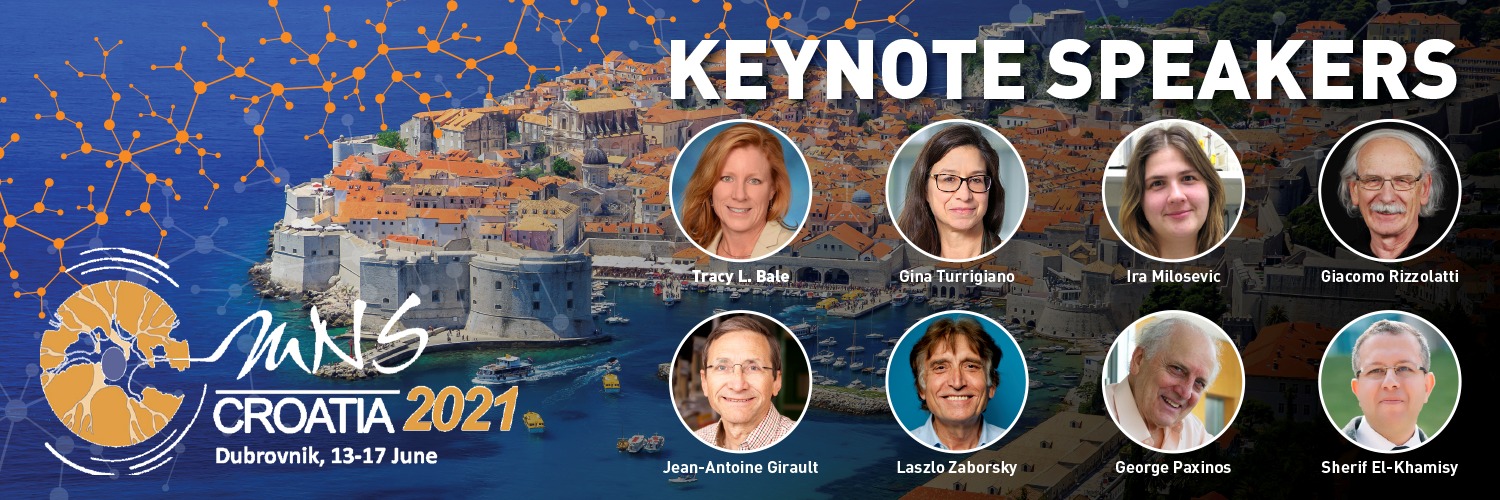
We are pleased to announce our keynote speakers for MNS2022, June 2022 in Dubrovnik, Croatia!
Tracy Bale, Baltimore, MD, USA - IBRO Presidential Lecture
 Tracy L. Bale
Tracy L. Bale is a Professor of Pharmacology and Director of the Center for Epigenetic Research in Child Health and Brain Development in the School of Medicine at the University of Maryland, Baltimore. She completed her Ph.D. at the University of Washington in the Department of Pharmacology, and her postdoctoral work at the Salk Institute with Dr. Wylie Vale. Dr. Bale was Professor of Neuroscience at the University of Pennsylvania for 15 years prior to her move to UMB. Her research focuses on understanding the role of stress dysregulation in neurodevelopmental and neuropsychiatric diseases, and the sex differences that underlie disease vulnerability using mice as the model organism. She is interested in developing models of parental stress and the germ cell involvement in transgenerational epigenetic programming of neurodevelopment. She serves on many internal and external advisory committees, panels, and boards and served as Chair of the NNRS CSR study section and was a Reviewing Editor at the Journal of Neuroscience for the last 6 years. She has been the recipient of several awards for her research in this area including the career development award for early career achievement and promise by the Society for Neuroscience, the Richard E. Weitzman Memorial award as exceptionally promising young investigator award by the Endocrine Society, the Medtronic Award from the Society for Women’s Health Research for outstanding research that has led to the improvement of women’s health, and recently the Daniel H. Efron award from the American College of Neuropsychopharmacology. She was recently elected President of the International Brain Research Organization (IBRO).
Gina Turrigiano, Waltham, MA, USA - SfN Presidential Lecture
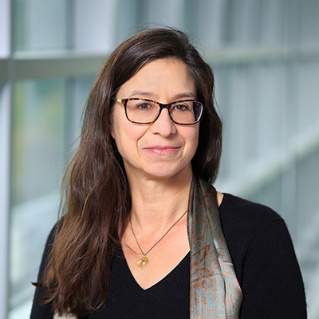 Gina Turrigiano
Gina Turrigiano is a professor in the Dept of Biology, the Volen Center for Complex Systems, and the Center for Behavioral Genomics at Brandeis University. She is a neuroscientist recognized for her pioneering work on homeostatic plasticity mechanisms that help to stabilize the function of neural circuits. She grew up in Northern California, received her BA from Reed College in 1984, and her PhD from University of California San Diego in 1990. She then trained as a postdoc with Eve Marder at Brandeis University before joining the faculty in 1994. She has received numerous awards for her research including a MacArthur foundation fellowship, McKnight Foundation Technological Innovation and Neurobiology of Disease awards, an NIH director's pioneer award, the HFSP Nakasone Award, and election to the American Academy of Arts and Sciences. Her scientific interests include mechanisms of synaptic and intrinsic plasticity and the experience-dependent refinement of neocortical microcircuitry.
She studies the experience-dependent development of neocortex, with a focus on the cellular plasticity mechanisms that allow the refinement of neocortical microcircuitry during critical periods of development. In particular, her work has uncovered a family of homeostatic plasticity mechanisms that work together to maintain the integrity of neural circuits during periods of intense synaptic rearrangments, such as occur during development and learning. Her lab employs a variety of approaches to tackle these problems, including electrophysiology, imaging, and optogenetics, using both in vitro and in vivo preparations of the rodent visual cortex.
She is the President- Elect of the American Society for Neuroscience (SfN).
Jean-Antoine Girault, Paris, FR - FENS Presidential Lecture
 Jean-Antoine Girault
Jean-Antoine Girault, MD, PhD, holds an Inserm research director position. He is currently head of the Institut du Fer à Moulin, an Inserm-UPMC center of research, with about ten teams working on the development and plasticity of the nervous system. His research is mainly on the signalling mechanisms involved in the plasticity of the nervous system, in normal and pathological conditions. The fields of application concern drug addiction and Parkinson disease, as well as axoglial interactions in myelinated fibers. The approaches used include molecular and cellular biology, functional neuroanatomy, and behavioural studies, etc. Member of various professional committees and the French and American societies for Neurosciences, Jean-Antoine Girault has actively participated in the creation of the Neuropôle de recherche francilien (NeRF). Very involved in teaching and training of young researchers and doctors, he has been the director of the Paris School of Neuroscience (ENP) between 2007 and 2009.
He is the President- Elect of the European Society for Neuroscience (FENS).
Ira Milosevic, Göttingen, DE - Croatian Society for Neuroscience invited Speaker
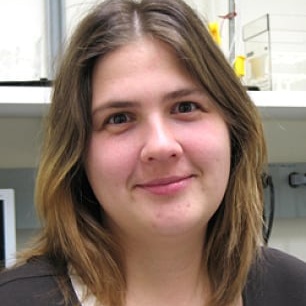 Ira Milosevic
Ira Milosevic graduated from the University of Zagreb (Zagreb, Croatia) in 2001, and did her PhD with Erwin Neher and Reinhard Jahn at Max the Planck Institute (Göttingen, Germany) on the cell biology of chromaffin cells1 . Subsequently, she worked on the role of endophilins in endocytosis2 and also contributed to ER-plasma membrane t ethering principles3 as a postdoc with Pietro DeCamilli at Yale University (New Haven CT, USA). In 2013, Ira was awarded the Emmy Noether Young Investigator Award from the German Research Council to establish an independent group at the ENI in Göttingen that focuses on the molecular underpinnings of synaptic function. Her group works on fundamental aspects of synaptic vesicle recycling related to neurological and neurodegenerative diseases using genomic, imaging and cell biological approaches. She is the invited as Speaker Croatian Society for Neuroscience invited Speaker.
Giacomo Rizzolatti, Parma, IT - MNS Emeritus Member Lecture
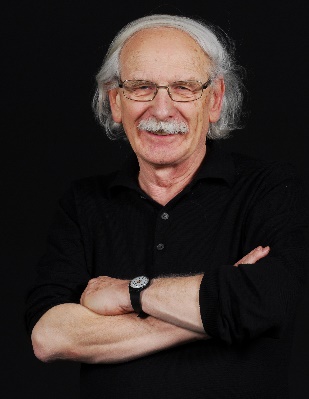 Giacomo Rizzolatti
Giacomo Rizzolatti is Professor of Human Physiology at the Universitàdeglistudi di Parma, where he is the Director of the Department of Neurosciences. Formerly President of the European Brain Behavior Society and the Italian Society for Neuroscience, as well as member of the European Medical Research Council, Professor Rizzolatti has, for several years, directed the European Training Program in Brain and Behaviour Research (ETP) sponsored by the European Science Foundation. He is member of Academia Europaea and of Accademia deiLincei as well as Honorary Foreign Member of the American Academy of Arts and Sciences. He was recently elected Associéétranger of the Institut de France’s Académie des Sciences. Among Professor Rizzolatti’s major awards are the Golgi Prize for Physiology, the George Miller Award of the CognitiveNeuroscience Society, the Accademia deiLincei’s Feltrinelli Prize for Medicine and the Herlitzka Prize for Physiology awarded by the Accademia delleScienze di Torino. Since the early eighties, Professor Rizzolatti has been recording the activity of nerve cells in the brain specialised for the control of hand actions such as grabbing objects or picking items up. In 1996, this resulted in the discovery of "Mirror Neurons" that is neurons which fire or become active both when one performs such hand actions aswell as when one observes them in another. Some scientists consider “Mirror Neurons” as one of the most important findings in the last decade. Their potential importance lies with the fact that they may be the basis through which we are able to understand the intentions of others, acquire language and share feelings. For his continuous support to neuroscience in the Mediterranean regions will be awarded the MNS Emeritus Membership during the MNS2022.
Laszlo Zaborszky, Newark, NJ, USA

Distinguished Professor at Rutgers University (NJ, USA), founding Editor-in–Chief, Brain Structure and Function. Author of over 115 scientific papers, book chapters and a monograph. His research, supported by the NIH since 1986, has profound implications in the field of neural basis of attention, cognition as well as for such diseases as Alzheimer’s. Editor: Neuroanatomical Tract–Tracing Methods 2-3 (1989 Plenum; 2006 Springer). President, New York Hungarian Scientific Society (2012-2016), President, Association of American Hungarian Academicians (2018-2020), Foreign Member, Hungarian Academy of Sciences (2007-). Board of Trustees Award for Research Excellence (President, Rutgers University, 2016), Knight Cross, Order of Merit (President of Hungary, 2013).
George Paxinos, UNSW, Sidney, AU
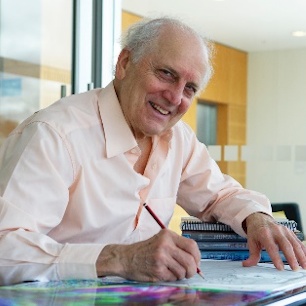
Scientia
Professor George Paxinos studied psychology at The University of California at Berkeley, McGill University and Yale University before taking up a lectureship at The University of New South Wales, in Sydney. He is now an NHMRC Senior Principal Research Fellow at Neuroscience Research Australia and Scientia Professor at The University of New South Wales.
He identified 91 hitherto unknown regions in the brain of rats and humans and has published 57 books on the brain and spinal cord of humans and experimental animals and a novel that deals with environmental degradation. Most scientists working on the relationship between brain and emotion, motivation and thought, including neurologic or psychiatric diseases, or animal models of these diseases, use Paxinos’ atlases and concepts of brain organization. His first book, The Rat Brain in Stereotaxic Coordinates, is the most cited work in neuroscience. His Atlas of the Human Brain received the American Association of Publishers Award for Excellence in Publishing in Medical Science and the British Medical Association Illustrated Book Award. He received the Alexander von Humboldt Award and holds three honorary doctorates. In 2019 he was made a distinguished fellow of the Royal Society of New South Wales.
He served as president of the Australian Neuroscience Society and of the IBRO World Congress of Neuroscience.
Sherif El-Khamisy, Sheffield, UK
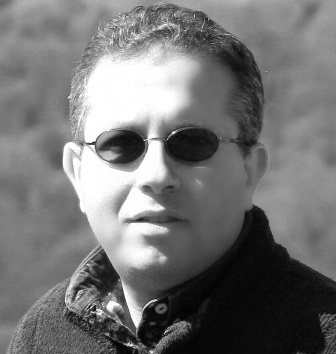 Sherif El-Khamisy
Sherif El-Khamisy is a pharmacist by training, a Wellcome Trust Investigator and a Lister Institute Fellow at the University of Sheffield. Sherif's lab uses a combination of biochemical, genetic and whole animal approaches to study how cells maintain genomic integrity in health and disease. His early work revealed the importance of repairing chromosomal single-strand breaks to maintain neurological function. More recently, the lab identified new players and mechanisms for repairing oxidative and protein-linked chromosomal breaks and uncovered their connection to human disorders such as ataxia, dementia and ALS.

 Tracy L. Bale is a Professor of Pharmacology and Director of the Center for Epigenetic Research in Child Health and Brain Development in the School of Medicine at the University of Maryland, Baltimore. She completed her Ph.D. at the University of Washington in the Department of Pharmacology, and her postdoctoral work at the Salk Institute with Dr. Wylie Vale. Dr. Bale was Professor of Neuroscience at the University of Pennsylvania for 15 years prior to her move to UMB. Her research focuses on understanding the role of stress dysregulation in neurodevelopmental and neuropsychiatric diseases, and the sex differences that underlie disease vulnerability using mice as the model organism. She is interested in developing models of parental stress and the germ cell involvement in transgenerational epigenetic programming of neurodevelopment. She serves on many internal and external advisory committees, panels, and boards and served as Chair of the NNRS CSR study section and was a Reviewing Editor at the Journal of Neuroscience for the last 6 years. She has been the recipient of several awards for her research in this area including the career development award for early career achievement and promise by the Society for Neuroscience, the Richard E. Weitzman Memorial award as exceptionally promising young investigator award by the Endocrine Society, the Medtronic Award from the Society for Women’s Health Research for outstanding research that has led to the improvement of women’s health, and recently the Daniel H. Efron award from the American College of Neuropsychopharmacology. She was recently elected President of the International Brain Research Organization (IBRO).
Tracy L. Bale is a Professor of Pharmacology and Director of the Center for Epigenetic Research in Child Health and Brain Development in the School of Medicine at the University of Maryland, Baltimore. She completed her Ph.D. at the University of Washington in the Department of Pharmacology, and her postdoctoral work at the Salk Institute with Dr. Wylie Vale. Dr. Bale was Professor of Neuroscience at the University of Pennsylvania for 15 years prior to her move to UMB. Her research focuses on understanding the role of stress dysregulation in neurodevelopmental and neuropsychiatric diseases, and the sex differences that underlie disease vulnerability using mice as the model organism. She is interested in developing models of parental stress and the germ cell involvement in transgenerational epigenetic programming of neurodevelopment. She serves on many internal and external advisory committees, panels, and boards and served as Chair of the NNRS CSR study section and was a Reviewing Editor at the Journal of Neuroscience for the last 6 years. She has been the recipient of several awards for her research in this area including the career development award for early career achievement and promise by the Society for Neuroscience, the Richard E. Weitzman Memorial award as exceptionally promising young investigator award by the Endocrine Society, the Medtronic Award from the Society for Women’s Health Research for outstanding research that has led to the improvement of women’s health, and recently the Daniel H. Efron award from the American College of Neuropsychopharmacology. She was recently elected President of the International Brain Research Organization (IBRO). Gina Turrigiano is a professor in the Dept of Biology, the Volen Center for Complex Systems, and the Center for Behavioral Genomics at Brandeis University. She is a neuroscientist recognized for her pioneering work on homeostatic plasticity mechanisms that help to stabilize the function of neural circuits. She grew up in Northern California, received her BA from Reed College in 1984, and her PhD from University of California San Diego in 1990. She then trained as a postdoc with Eve Marder at Brandeis University before joining the faculty in 1994. She has received numerous awards for her research including a MacArthur foundation fellowship, McKnight Foundation Technological Innovation and Neurobiology of Disease awards, an NIH director's pioneer award, the HFSP Nakasone Award, and election to the American Academy of Arts and Sciences. Her scientific interests include mechanisms of synaptic and intrinsic plasticity and the experience-dependent refinement of neocortical microcircuitry.
Gina Turrigiano is a professor in the Dept of Biology, the Volen Center for Complex Systems, and the Center for Behavioral Genomics at Brandeis University. She is a neuroscientist recognized for her pioneering work on homeostatic plasticity mechanisms that help to stabilize the function of neural circuits. She grew up in Northern California, received her BA from Reed College in 1984, and her PhD from University of California San Diego in 1990. She then trained as a postdoc with Eve Marder at Brandeis University before joining the faculty in 1994. She has received numerous awards for her research including a MacArthur foundation fellowship, McKnight Foundation Technological Innovation and Neurobiology of Disease awards, an NIH director's pioneer award, the HFSP Nakasone Award, and election to the American Academy of Arts and Sciences. Her scientific interests include mechanisms of synaptic and intrinsic plasticity and the experience-dependent refinement of neocortical microcircuitry. Jean-Antoine Girault, MD, PhD, holds an Inserm research director position. He is currently head of the Institut du Fer à Moulin, an Inserm-UPMC center of research, with about ten teams working on the development and plasticity of the nervous system. His research is mainly on the signalling mechanisms involved in the plasticity of the nervous system, in normal and pathological conditions. The fields of application concern drug addiction and Parkinson disease, as well as axoglial interactions in myelinated fibers. The approaches used include molecular and cellular biology, functional neuroanatomy, and behavioural studies, etc. Member of various professional committees and the French and American societies for Neurosciences, Jean-Antoine Girault has actively participated in the creation of the Neuropôle de recherche francilien (NeRF). Very involved in teaching and training of young researchers and doctors, he has been the director of the Paris School of Neuroscience (ENP) between 2007 and 2009.
Jean-Antoine Girault, MD, PhD, holds an Inserm research director position. He is currently head of the Institut du Fer à Moulin, an Inserm-UPMC center of research, with about ten teams working on the development and plasticity of the nervous system. His research is mainly on the signalling mechanisms involved in the plasticity of the nervous system, in normal and pathological conditions. The fields of application concern drug addiction and Parkinson disease, as well as axoglial interactions in myelinated fibers. The approaches used include molecular and cellular biology, functional neuroanatomy, and behavioural studies, etc. Member of various professional committees and the French and American societies for Neurosciences, Jean-Antoine Girault has actively participated in the creation of the Neuropôle de recherche francilien (NeRF). Very involved in teaching and training of young researchers and doctors, he has been the director of the Paris School of Neuroscience (ENP) between 2007 and 2009. Ira Milosevic graduated from the University of Zagreb (Zagreb, Croatia) in 2001, and did her PhD with Erwin Neher and Reinhard Jahn at Max the Planck Institute (Göttingen, Germany) on the cell biology of chromaffin cells1 . Subsequently, she worked on the role of endophilins in endocytosis2 and also contributed to ER-plasma membrane t ethering principles3 as a postdoc with Pietro DeCamilli at Yale University (New Haven CT, USA). In 2013, Ira was awarded the Emmy Noether Young Investigator Award from the German Research Council to establish an independent group at the ENI in Göttingen that focuses on the molecular underpinnings of synaptic function. Her group works on fundamental aspects of synaptic vesicle recycling related to neurological and neurodegenerative diseases using genomic, imaging and cell biological approaches. She is the invited as Speaker Croatian Society for Neuroscience invited Speaker.
Ira Milosevic graduated from the University of Zagreb (Zagreb, Croatia) in 2001, and did her PhD with Erwin Neher and Reinhard Jahn at Max the Planck Institute (Göttingen, Germany) on the cell biology of chromaffin cells1 . Subsequently, she worked on the role of endophilins in endocytosis2 and also contributed to ER-plasma membrane t ethering principles3 as a postdoc with Pietro DeCamilli at Yale University (New Haven CT, USA). In 2013, Ira was awarded the Emmy Noether Young Investigator Award from the German Research Council to establish an independent group at the ENI in Göttingen that focuses on the molecular underpinnings of synaptic function. Her group works on fundamental aspects of synaptic vesicle recycling related to neurological and neurodegenerative diseases using genomic, imaging and cell biological approaches. She is the invited as Speaker Croatian Society for Neuroscience invited Speaker. Giacomo Rizzolatti is Professor of Human Physiology at the Universitàdeglistudi di Parma, where he is the Director of the Department of Neurosciences. Formerly President of the European Brain Behavior Society and the Italian Society for Neuroscience, as well as member of the European Medical Research Council, Professor Rizzolatti has, for several years, directed the European Training Program in Brain and Behaviour Research (ETP) sponsored by the European Science Foundation. He is member of Academia Europaea and of Accademia deiLincei as well as Honorary Foreign Member of the American Academy of Arts and Sciences. He was recently elected Associéétranger of the Institut de France’s Académie des Sciences. Among Professor Rizzolatti’s major awards are the Golgi Prize for Physiology, the George Miller Award of the CognitiveNeuroscience Society, the Accademia deiLincei’s Feltrinelli Prize for Medicine and the Herlitzka Prize for Physiology awarded by the Accademia delleScienze di Torino. Since the early eighties, Professor Rizzolatti has been recording the activity of nerve cells in the brain specialised for the control of hand actions such as grabbing objects or picking items up. In 1996, this resulted in the discovery of "Mirror Neurons" that is neurons which fire or become active both when one performs such hand actions aswell as when one observes them in another. Some scientists consider “Mirror Neurons” as one of the most important findings in the last decade. Their potential importance lies with the fact that they may be the basis through which we are able to understand the intentions of others, acquire language and share feelings. For his continuous support to neuroscience in the Mediterranean regions will be awarded the MNS Emeritus Membership during the MNS2022.
Giacomo Rizzolatti is Professor of Human Physiology at the Universitàdeglistudi di Parma, where he is the Director of the Department of Neurosciences. Formerly President of the European Brain Behavior Society and the Italian Society for Neuroscience, as well as member of the European Medical Research Council, Professor Rizzolatti has, for several years, directed the European Training Program in Brain and Behaviour Research (ETP) sponsored by the European Science Foundation. He is member of Academia Europaea and of Accademia deiLincei as well as Honorary Foreign Member of the American Academy of Arts and Sciences. He was recently elected Associéétranger of the Institut de France’s Académie des Sciences. Among Professor Rizzolatti’s major awards are the Golgi Prize for Physiology, the George Miller Award of the CognitiveNeuroscience Society, the Accademia deiLincei’s Feltrinelli Prize for Medicine and the Herlitzka Prize for Physiology awarded by the Accademia delleScienze di Torino. Since the early eighties, Professor Rizzolatti has been recording the activity of nerve cells in the brain specialised for the control of hand actions such as grabbing objects or picking items up. In 1996, this resulted in the discovery of "Mirror Neurons" that is neurons which fire or become active both when one performs such hand actions aswell as when one observes them in another. Some scientists consider “Mirror Neurons” as one of the most important findings in the last decade. Their potential importance lies with the fact that they may be the basis through which we are able to understand the intentions of others, acquire language and share feelings. For his continuous support to neuroscience in the Mediterranean regions will be awarded the MNS Emeritus Membership during the MNS2022. Distinguished Professor at Rutgers University (NJ, USA), founding Editor-in–Chief, Brain Structure and Function. Author of over 115 scientific papers, book chapters and a monograph. His research, supported by the NIH since 1986, has profound implications in the field of neural basis of attention, cognition as well as for such diseases as Alzheimer’s. Editor: Neuroanatomical Tract–Tracing Methods 2-3 (1989 Plenum; 2006 Springer). President, New York Hungarian Scientific Society (2012-2016), President, Association of American Hungarian Academicians (2018-2020), Foreign Member, Hungarian Academy of Sciences (2007-). Board of Trustees Award for Research Excellence (President, Rutgers University, 2016), Knight Cross, Order of Merit (President of Hungary, 2013).
Distinguished Professor at Rutgers University (NJ, USA), founding Editor-in–Chief, Brain Structure and Function. Author of over 115 scientific papers, book chapters and a monograph. His research, supported by the NIH since 1986, has profound implications in the field of neural basis of attention, cognition as well as for such diseases as Alzheimer’s. Editor: Neuroanatomical Tract–Tracing Methods 2-3 (1989 Plenum; 2006 Springer). President, New York Hungarian Scientific Society (2012-2016), President, Association of American Hungarian Academicians (2018-2020), Foreign Member, Hungarian Academy of Sciences (2007-). Board of Trustees Award for Research Excellence (President, Rutgers University, 2016), Knight Cross, Order of Merit (President of Hungary, 2013). Scientia Professor George Paxinos studied psychology at The University of California at Berkeley, McGill University and Yale University before taking up a lectureship at The University of New South Wales, in Sydney. He is now an NHMRC Senior Principal Research Fellow at Neuroscience Research Australia and Scientia Professor at The University of New South Wales.
Scientia Professor George Paxinos studied psychology at The University of California at Berkeley, McGill University and Yale University before taking up a lectureship at The University of New South Wales, in Sydney. He is now an NHMRC Senior Principal Research Fellow at Neuroscience Research Australia and Scientia Professor at The University of New South Wales. Sherif El-Khamisy is a pharmacist by training, a Wellcome Trust Investigator and a Lister Institute Fellow at the University of Sheffield. Sherif's lab uses a combination of biochemical, genetic and whole animal approaches to study how cells maintain genomic integrity in health and disease. His early work revealed the importance of repairing chromosomal single-strand breaks to maintain neurological function. More recently, the lab identified new players and mechanisms for repairing oxidative and protein-linked chromosomal breaks and uncovered their connection to human disorders such as ataxia, dementia and ALS.
Sherif El-Khamisy is a pharmacist by training, a Wellcome Trust Investigator and a Lister Institute Fellow at the University of Sheffield. Sherif's lab uses a combination of biochemical, genetic and whole animal approaches to study how cells maintain genomic integrity in health and disease. His early work revealed the importance of repairing chromosomal single-strand breaks to maintain neurological function. More recently, the lab identified new players and mechanisms for repairing oxidative and protein-linked chromosomal breaks and uncovered their connection to human disorders such as ataxia, dementia and ALS.